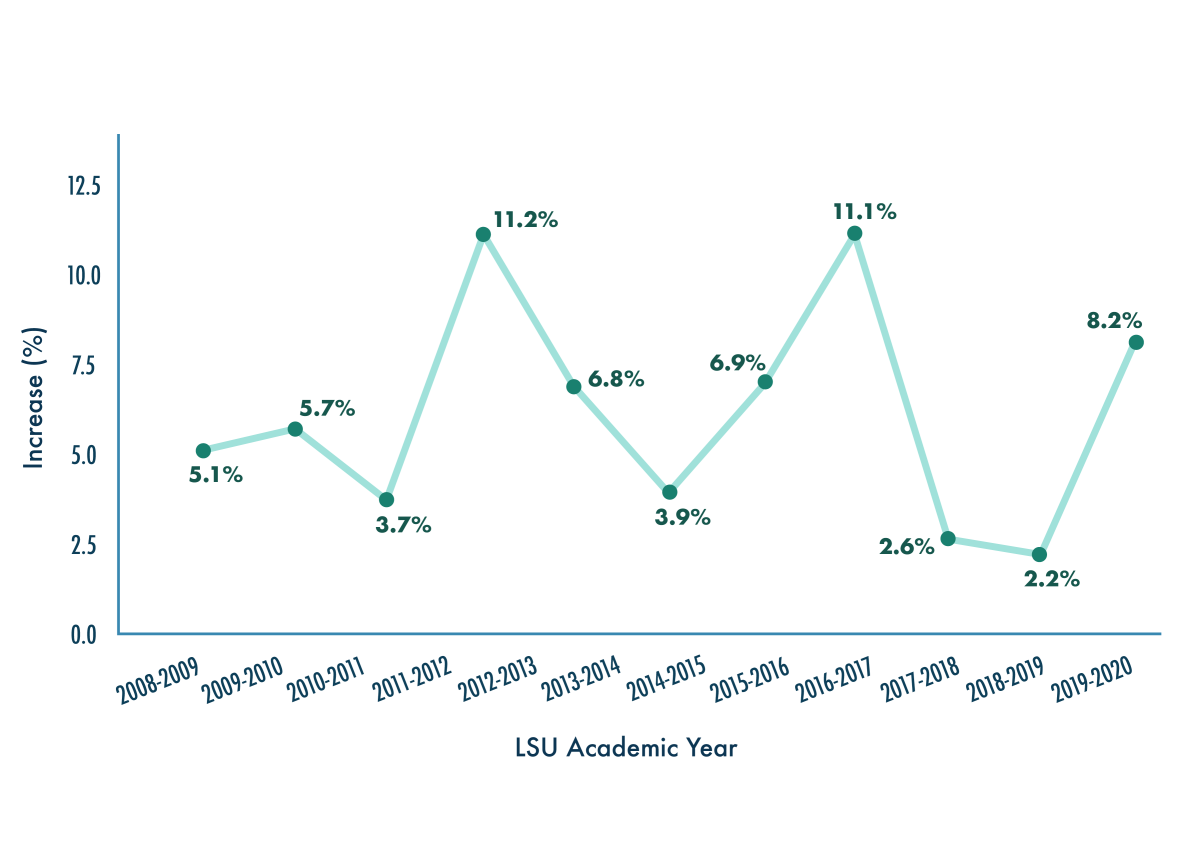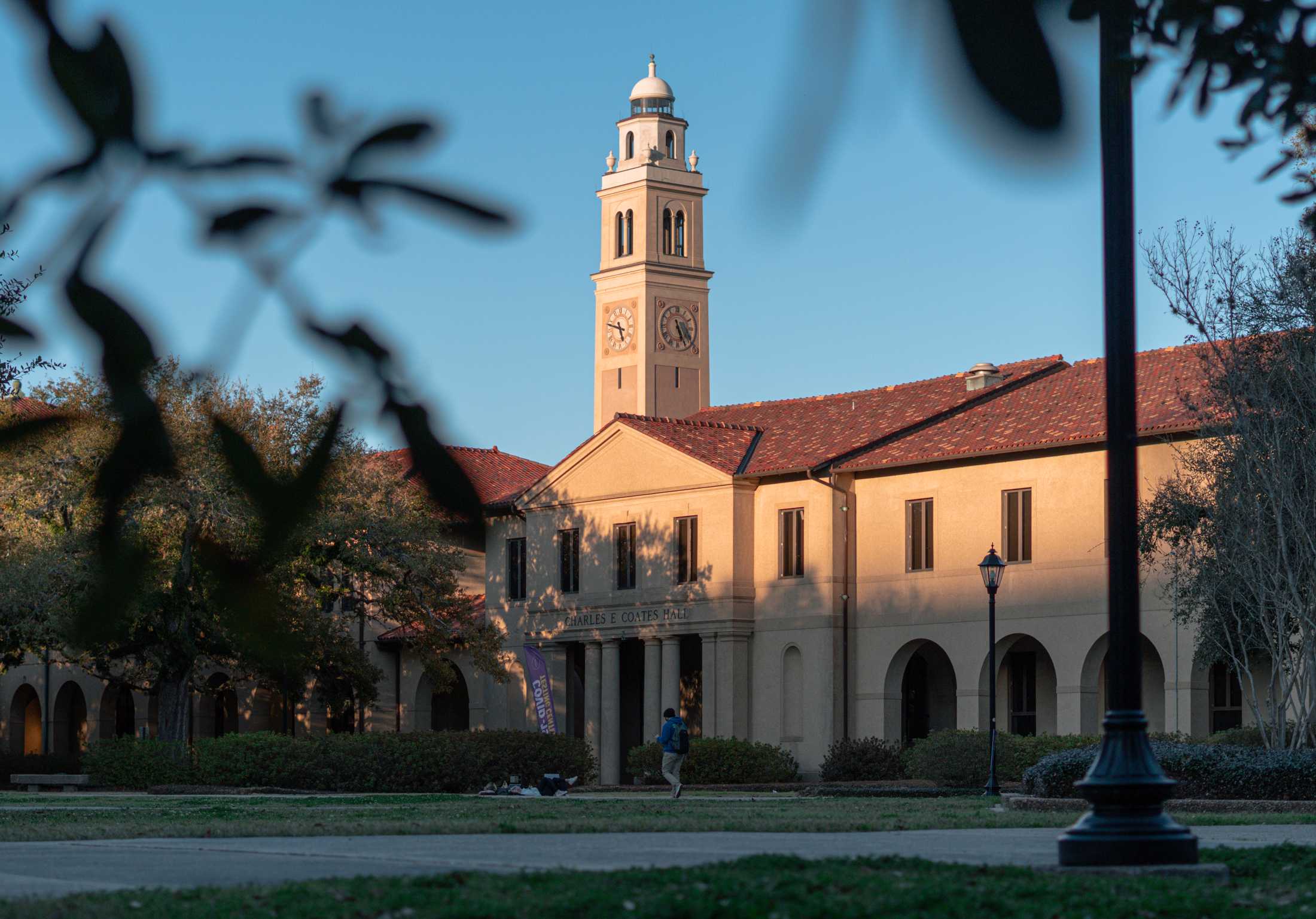College students in the U.S. pay more in tuition every year, especially students in Louisiana.
Tuition in Louisiana rose by 96.8% — $4,729 per student — from 2008 to 2019, the largest percentage increase of any state, the Center on Budget and Policy Priorities reported.
Tuition and fees at LSU increased 155% over the same period, according to data provided by LSU’s Office of Budget and Planning.
The increases in tuition coincide with decreases in state funding for higher education following the Great Recession. Louisiana’s state-spending per student dropped 37.7%, the second largest decrease of any state. Louisiana spends $4,340 less per student than it did in 2008.
Universities in Louisiana must get a two-thirds vote in the state legislature to approve increases in tuition.
Public universities cannot unilaterally raise tuition. Instead, institutions make up for decreases in state funding through other means, such as increasing student fees, which requires board-level approval.
The total cost of attending LSU — including tuition and fees, room and board, books and supplies, transportation and other expenses — increased 109% from 2008 to 2019. In 2008, the total cost was $15,709. In 2019, the cost increased to $32,96, for in-state undergraduate students.
Cuts in higher education in Louisiana began during the recession in 2009, according to Davante Lewis, who works on higher education policies and legislative affairs at the Louisiana Budget Project.
Lewis said Louisiana, along with other states like Arizona, has experienced what he calls a “major flop” where the public, state-funded universities have gone from being 80% funded by the state and 20% funded by tuition to almost 80% funded by tuition and fees and 20% state support.
“We really don’t have a public education system in Louisiana anymore because the majority of the operating budgets at universities are using tuition and fees,” Lewis said.
The shift in revenue streams for Louisiana universities has forced universities to focus on increasing enrollment.
Louisiana’s constitution includes statutory dedication funds — areas of the state’s operating budget that have to receive a certain level of funding. These areas are protected to some extent from budget cuts.
“The two places in the constitution that are not protected from budgetary cuts are higher education and healthcare,” Lewis said. “When you find yourself in the Great Recession that you did in 2009 and you find yourselves in a budget shortfall, the only place you can really make some significant cuts to budgets is in higher education.”
Mass communication sophomore Charlie Stephens said LSU students shouldn’t have to pay more in tuition and fees each year.
“There’s a lot of people in Louisiana that will tell you we need educated people in Louisiana to move the state forward to get out of these rankings where we’re last in everything,” he said. “Yet, we
don’t want to invest in higher education. We would rather cut LSU year after year and not talk about that. Then, LSU begs for crumbs at the legislature.”
Mass Communication Professor Robert Mann said he knows of many students whose money from working part-time jobs goes to paying for their tuition, fees and books.
“I know students who are having to work to put themselves through college,” Mann said. “I think there are more of those students than we imagine and there are certainly more of them today than there were 15 years ago because it’s just more expensive.”
Another aspect of the decrease in state funding is that faculty and staff haven’t gotten raises in years, and jobs go unfilled.
“The cost of not being able to invest directly into institutions means we don’t give professors raises,” Lewis said, “which then turns into a brain drought where we’re going to lose the best researchers and talented professors because we can’t afford to invest in them.”









